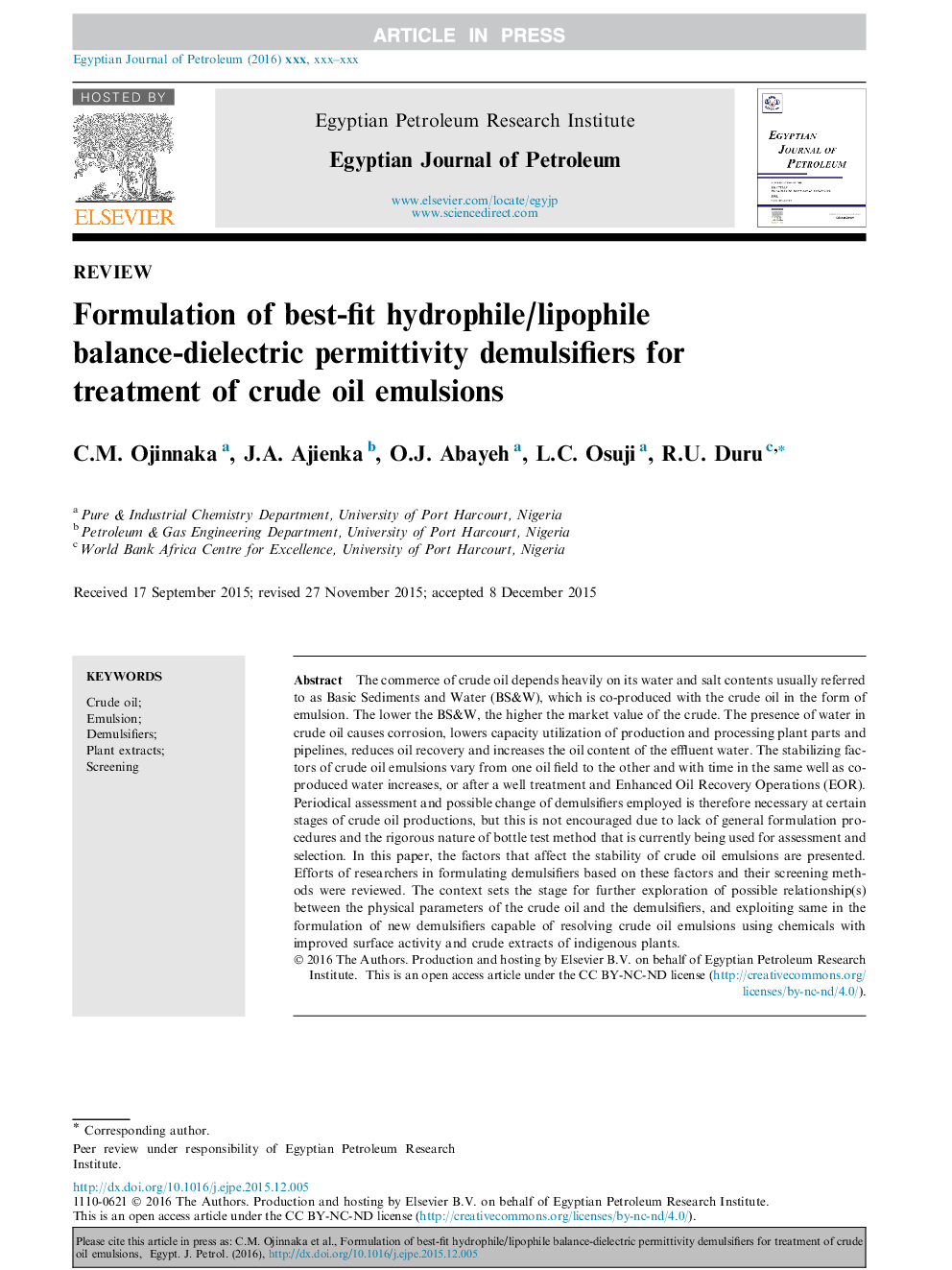| Article ID | Journal | Published Year | Pages | File Type |
|---|---|---|---|---|
| 5484682 | Egyptian Journal of Petroleum | 2016 | 10 Pages |
Abstract
The commerce of crude oil depends heavily on its water and salt contents usually referred to as Basic Sediments and Water (BS&W), which is co-produced with the crude oil in the form of emulsion. The lower the BS&W, the higher the market value of the crude. The presence of water in crude oil causes corrosion, lowers capacity utilization of production and processing plant parts and pipelines, reduces oil recovery and increases the oil content of the effluent water. The stabilizing factors of crude oil emulsions vary from one oil field to the other and with time in the same well as co-produced water increases, or after a well treatment and Enhanced Oil Recovery Operations (EOR). Periodical assessment and possible change of demulsifiers employed is therefore necessary at certain stages of crude oil productions, but this is not encouraged due to lack of general formulation procedures and the rigorous nature of bottle test method that is currently being used for assessment and selection. In this paper, the factors that affect the stability of crude oil emulsions are presented. Efforts of researchers in formulating demulsifiers based on these factors and their screening methods were reviewed. The context sets the stage for further exploration of possible relationship(s) between the physical parameters of the crude oil and the demulsifiers, and exploiting same in the formulation of new demulsifiers capable of resolving crude oil emulsions using chemicals with improved surface activity and crude extracts of indigenous plants.
Related Topics
Physical Sciences and Engineering
Energy
Energy (General)
Authors
C.M. Ojinnaka, J.A. Ajienka, O.J. Abayeh, L.C. Osuji, R.U. Duru,
